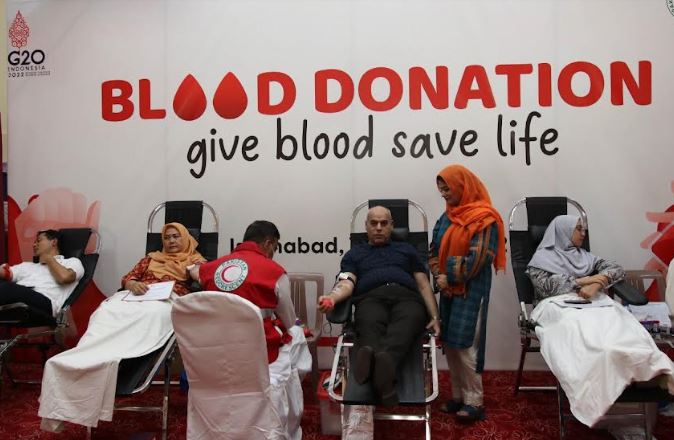On World Blood Donor Day, the World Health Organization and Pakistan’s Health Ministry launched an urgent appeal for five million voluntary blood donations each year to fill a dangerous gap in national healthcare. Hospitals currently require over 5 million units annually—expected to rise to 5.6 million by 2030—but only receive around 2.3 million donations, less than half the amount needed.
An event at the Pakistan Institute of Medical Sciences saw about 150 volunteers donate blood under the theme “Give blood, give hope – together we save lives,” as WHO Representative Dr Dapeng Luo emphasized that one donation can save up to three lives. He stressed that every patient in need should have access to safe blood as part of a resilient health system.
Currently, 82% of Pakistan’s blood supply comes from family or replacement donor,s while only 18% is from voluntary, non-remunerated donors. Increasing voluntary contributions is key to reducing the risk of disease transmission and ensuring reliable access for all income groups.
Parliamentary Secretary Dr Nelson Azeem praised the dedication of voluntary donors, calling blood donation a noble act. Health Director General Dr Shabana Saleem noted ongoing efforts to revitalize regional blood transfusion centers, aided by WHO’s technical support in implementing robust screening and testing standards.
Together, WHO and Pakistan are working to strengthen blood banks, standardize safety protocols, and launch public awareness initiatives aimed at encouraging every healthy citizen to become a regular volunteer donor. A secure and sufficient blood supply is critical to saving lives now and in the future.



Comments (0)
No comments yet. Be the first to comment!
Leave a Comment